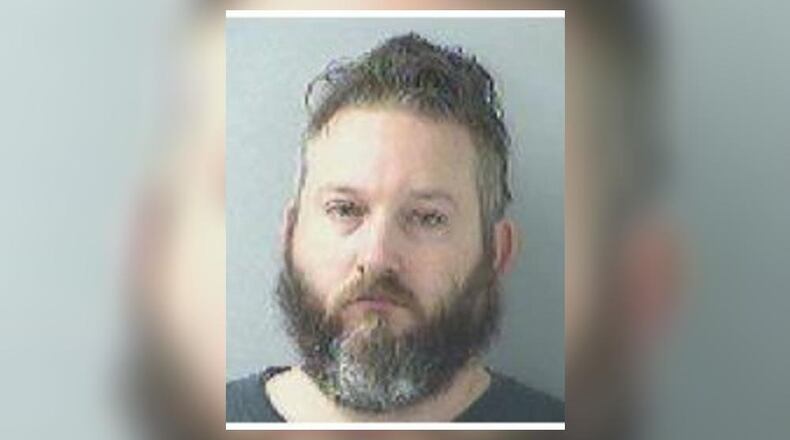Here are seven things we’ve learned about this case through the indictment:
1. The United Sheepdogs of Ohio is a regional militia group
In the unsealed federal indictment, the United Sheepdogs of Ohio is noted as a small militia group with at least 12 members living throughout the Southern District of Ohio. The Sheepdogs training sessions included practicing long- and short-range shooting and discussed firearms and survival skills.
2. There was allegedly a ‘Special Projects Team’
King and Goodman allegedly established and belonged to a subset of the Sheepdogs which they referred to as the “Special Projects Team.” They allegedly wanted to build, stockpile and use destructive devices and improvised explosive devices, including what they called “crater makers.” Allegedly, these devices were powerful enough to take down a small tree.
MORE: Middletown woman caught on nanny cam facing child abuse charge
3. Some activity allegedly occurred at a home Christmas party
On Monday, Franklin police blocked off part of South Main Street while FBI agents searched King’s residence. According to the indictment, the Sheepdogs held their Christmas party at King’s residence on Dec. 8, 2018. This is where King allegedly showed Goodman a collection of parts necessary to make a pipe bomb such as the steel pipe with end caps, electronic matches and wireless relays. He displayed the CO2 cartridge that had a fuse and green electrical tape and was filled with an unknown substance. King allegedly told Goodman these devices could be easily placed under a front car seat of a vehicle or wired into a vehicle engine. Goodman allegedly responded, “I like that, that’s the method I like.”
4. Road trip to Kentucky gun range
On Oct. 12, 2018, King and Goodman allegedly travelled to Knob Creek Gun Range – Machine Gun Shoot in West Point, Ky. This is where King allegedly purchased a wire assembly and inert grenades and where King allegedly suggested methods “if they wanted to get more lethal.” Goodman allegedly commented that would make them an elite group.
5. Boston Marathon bombing was allegedly discussed as an example
Prior to a Sheepdogs training at Goodman’s residence in Ripley on Jan. 5, both he and King allegedly discussed construction and ignition logistics in detail as they were testing their “crater makers.” Goodman allegedly referenced the Boston Marathon bombing as an example of a remote detonation system that worked.
King allegedly told Goodman that he would teach Goodman how to make the “crater makers.” On Jan. 18, while they allegedly worked on improvised initiation systems, Goodman asked King how the Boston Marathon bombers used the pressure cookers for their bombs. King allegedly said said he wanted to focus on making these devices “anti-personnel” which he thought would be more useful for them.
6. Which pipe should be used?
King and Goodman allegedly discussed making pipe bombs out of PVC pipe. King allegedly told Goodman that PVC pipe bombs would “not be as lethal, if at all.” King allegedly said that “there is a much bigger blast when using steel pipe with the same amount of powder. Goodman allegedly said he was thinking about using pressure cookers, the indictment said.
King allegedly said “If you really want explosions you would bury these in the driveway, so they go up and out. We can build land mines, I’ve already built them before, you know that.”
They also allegedly discussed making pipe bombs using PVC pipe, but King said metal pipe would be more lethal.
7. Possible prison terms if convicted
According to Jennifer Thornton, U.S. Attorney’s Office spokesperson, possessing an unregistered firearm or destructive device is punishable by up to 10 years in prison. Conspiring to do so is a crime that carries a potential maximum sentence of five years in prison.
About the Author

